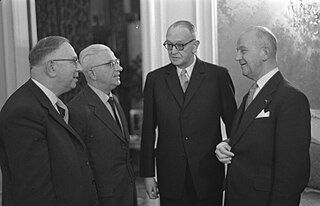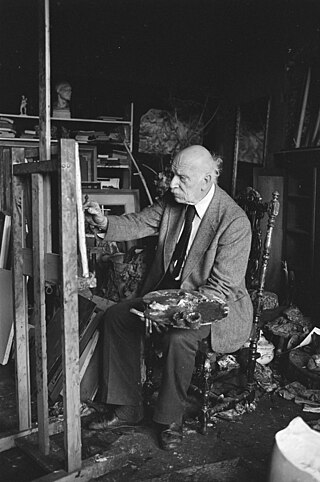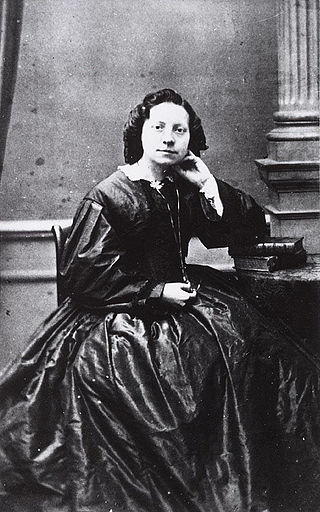Related Research Articles

Cornelis Johannes Jacobus Maria "Cees" Nooteboom is a Dutch novelist, poet and journalist. After the attention received by his novel Rituals, which won the Pegasus Prize, it was the first of his novels to be translated into an English-language edition, published in 1983 by Louisiana State University Press of the United States. LSU Press published his two earlier novels in English in the following years, as well as other works up until 1990. Harcourt and Grove Press have since published some of his works in English.

Jan Massijs or Jan Matsys was a Flemish Renaissance painter known for his history paintings, genre scenes and landscapes. He also gained a reputation as a painter of the female nude, which he painted with a sensuality reminiscent of the school of Fontainebleau.

The P.C. Hooft Award, inaugurated in 1948, is a Dutch-language literary lifetime-achievement award named after 17th-century Dutch poet and playwright Pieter Corneliszoon Hooft. The award is made annually.
The Prijs der Nederlandse Letteren is awarded every three years to an author from the Netherlands, Belgium or, since 2005, Suriname writing in Dutch. It is considered the most prestigious literary award in the Dutch-speaking world, and the award is presented alternately by the reigning Dutch and Belgian monarchs.

Harry Lintsen is a Dutch scientist. He is professor in history of technology at Eindhoven University of Technology, Netherlands, and researcher on microplastics.

The Constantijn Huygens Prize is a Dutch literary award.
The Anne Frank Prize was a literary award that was given out in the Netherlands in the years 1957 to 1966 by The Netherlands-America Foundation.

Kees Verwey was a Dutch painter who was productive well into old age.

Meindert Fennema was a Dutch political scientist and Emeritus Professor of political science, who was attached to the Department of Political Science and the Institute for Migration and Ethnic Studies of the University of Amsterdam, where he held the chair on Political Theory of Ethnic Relations.
Adrienne Dixon is a translator of Dutch and Flemish literature into English. She has translated the work of Cees Nooteboom and several other authors, including Harry Mulisch. "Dixon is one of the most prolific translators of Dutch fiction... One reviewer even suggested that she should be honoured for what she has done 'to reclaim contemporary Dutch fiction for anglophone readers'."

The Wilhelmina-ring is a bi-annual lifetime achievement award granted to a prominent Dutch sculptor. The prize was initiated in 1998 by the Foundation Wilhelmina-ring to memoralize that year Wilhelmina of the Netherlands was inaugurated as queen 100 years earlier.

Paul Bernard Cliteur is a Dutch professor of jurisprudence at Leiden University, as well as a politician, philosopher, writer, publicist and columnist. He is known for his conservative perspective, his atheism, his republicanism, and his dislike of Islam. He is a member of De Vrije Gedachte. Since 2015, Cliteur has been a member of the Dutch political party Forum voor Democratie, where he is chairman of the advisory board and the party's official think tank. In 2019 he was elected to be parliamentary group leader for Forum voor Democratie in the Dutch Senate.
Ina Rilke is a Mozambique-born translator who specializes in translating Dutch literature and French literature into English.
The Multatuli Prize is a Dutch literary prize that is given every year to an author for exemplary writing in Dutch language.

Christina Elizabeth (Betsy) Perk, was a Dutch author of novels and plays, and a pioneer of the Dutch women's movement, who wrote under the pen names Philemon, Liesbeth van Altena, and Spirito. She is known as the founding member of the Algemeene Nederlandsche Vrouwenvereeniging Arbeid Adelt in 1871, the women's magazine Onze Roeping, and the weekly magazine for women Ons Streven in 1869, the latter publication being the country's first women's periodical. In later years, her influence and activism diminished due to poor health, and she mainly focused on writing historical novels. From 1880 to 1890, she lived in Belgium. She is buried at the cemetery Rustoord in Nijmegen.
Dirk de Vos is a Belgian art historian specialising in medieval art. He was the curator of the Groeningemuseum in Bruges.
Hans Peter Nooteboom was a Dutch botanist, pteridologist, plant taxonomist, and journal editor.
Eduard Siegfried"Eddy"de Jongh is a Dutch art historian specialized in iconography. He was professor of art history with a teaching assignment in iconography at Utrecht University between 1976 and 1989.

Foxhol is a village in the Dutch province of Groningen. It is part of the municipality of Midden-Groningen. In 1842, the potato starch factory Eureka was founded in Foxhol by Willem Albert Scholten. Foxhol became an industrial area with factories and shipyards. The village is nowadays part of the urban area of Hoogezand.

Monika Triest is a Belgian academic, writer, and civil rights activist. After earning a degree in classical philology at Ghent University, she moved to Canada to teach at the University of New Brunswick in 1965. Three years later when she moved to Yellow Springs, Ohio to teach at Antioch College, Triest became involved in the civil rights and women's liberation movements in the United States. She participated in demonstrations against the Vietnam War and in favor of Roe v. Wade. While she was earning her PhD at the University of Cincinnati, she and Sylvia Tucker offered one of the first women's study courses at the university in 1971. After earning her PhD in 1976, Triest returned to Belgium and in 1985 became the first chair of the women's studies program at the University of Amsterdam, and first women's studies professor in the Netherlands. She continued to teach at various educational facilities until her retirement in 2008.
References
- ↑ van Lierop-Debrauwer, Helma; Bekkering, Harry (2004). Dat moet je gelezen hebben literaire en educatieve canonvorming in de (jeugd)literatuur (in Dutch). Biblion Uitgeverij. p. 221. ISBN 978-90-5483-514-1 . Retrieved 14 June 2022.
- ↑ Cartens, Daan (1995). Der Augenmensch Cees Nooteboom (in German). Suhrkamp. p. 297. ISBN 9783518388600.
- ↑ Ons erfdeel Volume 32 (in French and Dutch). Stichting Ons Erfdeel. 1989. p. 675. Retrieved 14 June 2022.
- ↑ Desmet, Mieke K. T. (2007). Babysitting the Reader Translating English Narrative Fiction for Girls Into Dutch (1946-1995). Peter Lang. p. 45. ISBN 9783039111473 . Retrieved 14 June 2022.
- ↑ Mantingh, Erwin; Aussems, Mark (2008). Kijk op de Middeleeuwen (in Dutch). Verloren. p. 240. ISBN 9789087040666 . Retrieved 14 June 2022.
- ↑ Pettegree, Andrew; der Weduwen, Arthur (2019). The Bookshop of the World Making and Trading Books in the Dutch Golden Age. Yale University Press. p. 421. ISBN 9780300230079 . Retrieved 14 June 2022.